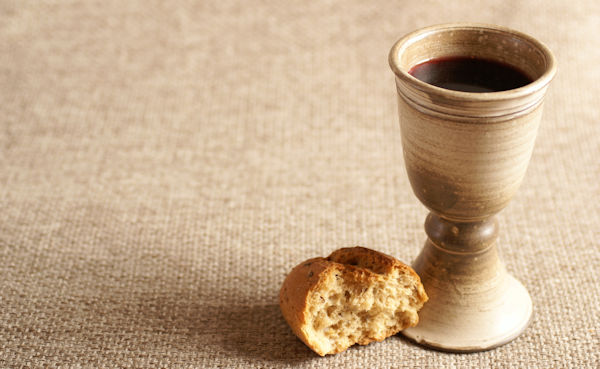In this edition of Drinking the Cup, Rev. John Boley calls for a new approach to personal and institutional clutter.
REV. JOHN W. BOLEY
Assistant to the Bishop, Michigan Area
This past weekend my three adult children descended on our home in Kalamazoo for the purpose of de-junking our house. It was great to have them home. And Hannah is doing well.
Over the past several years, our house has been the dumping ground for lots of stuff. The young adult transitions of our three children, combined with lots of their childhood stuff, have left our house with too much clutter. And we have been the depository for the households of both sets of our parents as they have downsized several times and three of the four of them have passed away. So, our house has been grand central station for lots of critical possessions that no one knows what to do with. I know that many of you have been in this same position and can resonate fully.
So, last weekend was designated by our children to help their ole’ parents manage all the stuff and get rid of as much as possible to Goodwill and Salvation Army. We are not garage sale people, so we’ve packed it off to wherever we could. It was great to have everyone home. Of course there were lots of smiles, laughter and remembrances. But as we know, de-junking is hard to do.Things that haven’t been thought about in years suddenly take on new importance. But just like the oil filter commercial – “pay me now or pay me later” – my kids have figured out that they either help clear us out now, or they’ll get stuck with it later anyway.
Also over the last several years, I have been influenced by the work of Phyllis Tickle, Episcopalian theologian and educator. Before passing away last year, she did some great work on the Emerging Church. Her historical theory is that the Church has gone through a major upheaval about every 500 years as it examines new understandings of authority. And then the Church has a rummage sale, keeping the good stuff and getting rid of a lot of old stuff, and developing new understandings. She claims that a new 500 year period began on 9/11.
It takes a long time for each new incarnation of the Church to conduct this rummage sale and create its new understandings. But the Emerging Church is marked by de-institutionalization, more emphasis on hands- on service, high use of technology, deeper understanding of the incarnation and the sacraments, non-hierarchical leadership, ancient-modern forms of worship and liturgy, and radical inclusiveness and hospitality. I can see these changes in my own children, who are not only de-junking our house, but are part of the Emerging Church and are holding Phyllis Tickle’s rummage sale.
So, just as we de-junked our house, there are some things in my life that need to be de-junked. And we can all think of some things in our beloved United Methodist Church that could be de-junked. The images of “pruning” from Jesus and the Scriptures come to mind. Here are just a few that come to my awareness as I write this:
1. I want to continue to de-junk my desire for possessions. Things which at some point seem so important become irrelevant very quickly. And none of it goes with us. I want to improve my spiritual life and relieve my children of the burden of cleaning up after Diane and me by continuing the process of being possession-averse. But it relates more to an attitude than to the actual physical possessions. Even though we are incarnational people, becoming possession-averse can only be spiritually uplifting.
2. I want to de-junk the notion that the 1950’s model of church in which I am steeped is the best way to be the Body of Christ. The Church will exist until the end of time because God has ordained it. I don’t need to insist that my version of church is better than the past or the future. By de-junking this, I can be more open to the working of the Spirit.
3. I want to de-junk the notion that my generation and my parents’ generation are somehow more capable than the next generation. Committed Christians of my children’s generation are amazing people, fully capable of keeping the good stuff and improving on everything else. While I can help them, at some point I just need to get out of the way. And that’s ok.
What this does is give me great hope. It gives me great hope in the ongoing life of the Church of Jesus Christ, which will indeed exist in new and great forms until the end of time. It gives me great hope in the next generation, which has more passion and ability than us old folks want to admit. And it gives me great hope that the Holy Spirit is alive and well and actively at work despite my captivity in present context. Thanks be to God.
Last Updated on January 18, 2017

